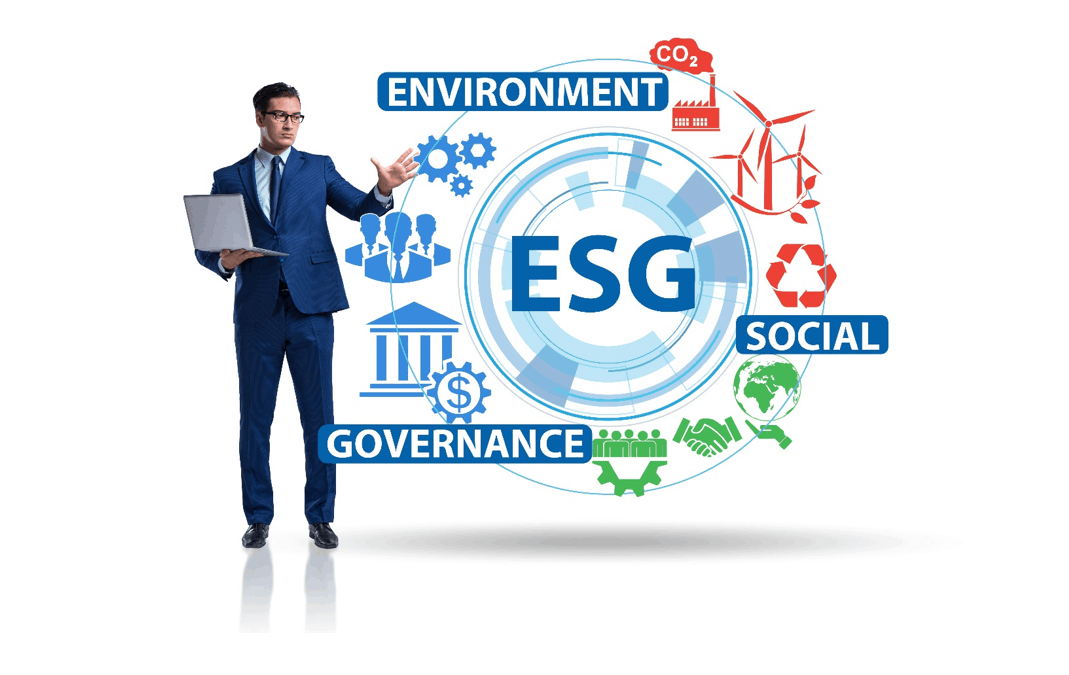Looking back at 2020, a year that will be historically remembered for the beginning of a global pandemic, economic recession, several environmental catastrophes, and rising racial unrest across the United States, we can see that the world as everyone knows it has undergone some drastic changes. These changes are especially apparent in the world of business. Customers, employees, investors, shareholders, governments, and all other stakeholders have increased their expectations for businesses and are avidly demanding more transparency concerning their environmental, economic, and social impact. The disruption in global supply chains has also made the need for resilience and clarity impossible for businesses to ignore. More detailed reporting is the solution for profitable communication within the business sector. This solution is not without its own difficulty, however. With most businesses reporting non-financial data, the necessity of a common language has become apparent. Through widespread adoption, the Global Reporting Initiative (GRI) Standards offer a global common language for corporate transparency, enabling reporting that is comprehensive and consistent. The GRI Standards (a free resource) are available for download here.
Using the GRI standards, companies can publish more straightforward reports relaying their non-financial performance, including their environmental and social responsibility and corporate governance structure. Depending on the company, these reports are typically categorized as:
- Corporate Social Responsibility (CSR) reports,
- Environmental, Social and Governance (ESG) reports,
- Sustainability reports.
A recent survey by Globescan highlights that trust in and dependence on sustainability reporting to assess companies’ ESG performance for sustainability and responsible investing (SRI) purposes is universally increasing.
In 2020, the 11th edition of the KPMG “Survey of Sustainability Reporting” showed that 96 percent of the world’s 250 largest companies (G250) publicly reported their sustainability performance. 52 countries were represented in the survey. Within those countries, 5,200 companies comprise the 100 leading revenue firms, or the NASDAQ-100 (N100). Of the N100 companies, 80% already report within the public domain. Across all companies surveyed, the GRI Standards offer the only sustainability reporting framework demonstrating widespread acceptance and adoption. Around three-quarters (73 percent) of the G250 and two-thirds (67 percent) of the N100 are utilizing the Global Reporting Initiative Standards. From the KPMG research, it is evident that most of the world’s leading companies have adopted the GRI Standards as an effective means of disclosing their sustainability impacts, with the latest update to the GRI adapting to cover the UN’s SDGs as well.
Why GRI?
The GRI Standards achieved their influence by originating standards for sustainability reporting and strategically partnering with development organizations such as the OECD, UN Global Compact, the UNEP, and the ISO. Here are a few reasons why companies choose it for their reporting needs:
- GRI Standards are trusted and used universally. The Global Reporting Initiative as a group builds partnerships to encourage this liaison with both international and national agencies.
- GRI’s materiality principle establishes a framework for companies in identifying their most significant environmental, social, and economic impacts based on the nature of their business. After taking a materiality analysis, companies can select relevant “material topics” to create reporting for with industry-focused reporting standards. Further, the materiality principle helps investors focus assessments for value creation on specific ESG actions and practices, and easily discern whether investor interests and company goals align.
- GRI standardization eliminates the biggest challenge to ESG investment—gathering reliable and relevant data. GRI enables companies to easily compile high-quality ESG performance data. This essential business information is then readily available for assessment by investors (as well as internal stakeholders).
- Through its data and structure, GRI makes it easier to compare the impact of competing companies, providing not only more data for investors when choosing companies to invest in, but an increased drive for sustainability practices as companies are affirmed for their performance regarding ESG principles.
- GRI provides flexibility through its 34 topic-specific standards so companies can update individual standards, instead of the entire reporting system. This structure allows GRI to incorporate emerging ESG topics and metrics (e.g., tax transparency) without a complete reconfiguration.
- One of the main aims of GRI is to be inclusive to stakeholders. GRI’s stakeholder inclusiveness principle makes clear a company’s need for identifying their stakeholders and addressing stakeholder expectations and interests.
Pushing businesses towards a fairer, more sustainable world
The Global Reporting Initiative has become a catalyst for change, pushing organizations to take responsibility for their impact on people and the planet. It has never been more imperative for businesses to improve their positive impact on the environment, society, and the economy. In the aftermath of the pandemic, the most recent changes to the reporting standards emphasize growing transparency in reporting on human rights and due diligence obligations, pushing the world to become a more equitable place. In October of 2021, human rights were included as a new materiality topic through the GRI’s partnership with the UN Guiding Principles on Business and Human Rights (UNGPs). Mandatory human rights and environmental due diligence legislation have been emerging globally. By adopting the GRI Standards for reporting, businesses stay up to date with the latest guidelines for enterprise and gain a competitive advantage over businesses that have been reluctant to invest effort and finances into their ESG performance.
Author Bio

Fatima Fasih
Experienced in corporate sustainability in both developed and emerging markets, Fatima Fasih has over 5 years of experience in advising businesses on their sustainability strategies and reporting. She also assists businesses in identifying their progress on the UN Sustainable Development Goals.
Currently, working as an independent Sustainability Consultant, Fatima holds a Masters degree in Sustainability Management and Bachelors in Health Sciences and Environmental Science from the University of Toronto.
She is also certified a Greenhouse Gas Inventory Quantifier (GHG-IQ) and aims to work towards pushing businesses to play a larger role in solving the world’s biggest sustainable development problems: hunger, poverty, and inequality.


